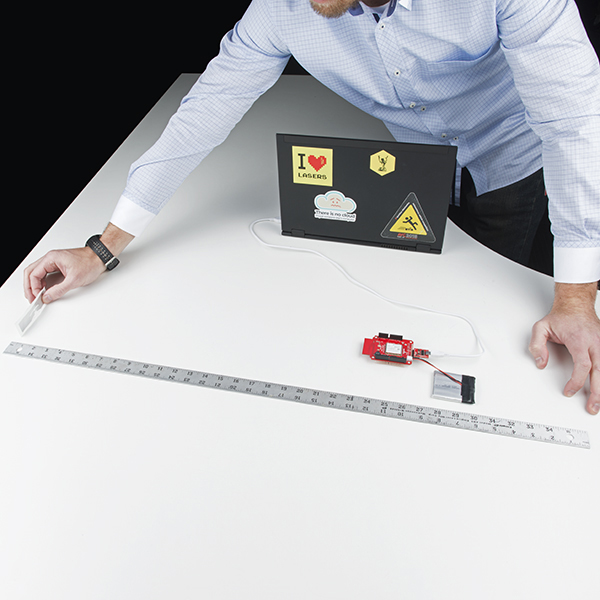SparkFun Simultaneous RFID Tag Reader - NANO M6E (SEN-14066)
This is a powerful shield capable of reading multiple RFID tags at the same time. It can also write to tags. Works with UHF Gen2 RFID tags.
Thanks to:
- paulvha on forums for finding and recommending fix for writeEPC bug
Note - Most examples make use of SoftwareSerial, which is not included in all platform cores. If you run into compilation errors due to this, you'll need to install an appropriate library for your platform (eg. ESPSoftwareSerial for ESP32), or replace softSerial in the examples with something that works for your platform (eg. Serial2 for ESP32 or Serial5 for teensy, see Advanced Example1).
- /examples - Example sketches for the library (.ino). Run these from the Arduino IDE.
- /src - Source files for the library (.cpp, .h).
- keywords.txt - Keywords from this library that will be highlighted in the Arduino IDE.
- library.properties - General library properties for the Arduino package manager.
- Hookup Guide - Hookup guide for the RFID shield.
- Installing an Arduino Library Guide - Basic information on how to install an Arduino library.
- Product Repository - Main repository (including hardware files) for the RFID Shield.
This product is open source!
The code is beerware; if you see me (or any other SparkFun employee) at the local, and you've found our code helpful, please buy us a round!
Please use, reuse, and modify these files as you see fit. Please maintain attribution to SparkFun Electronics and release anything derivative under the same license.
Distributed as-is; no warranty is given.
- Your friends at SparkFun.

